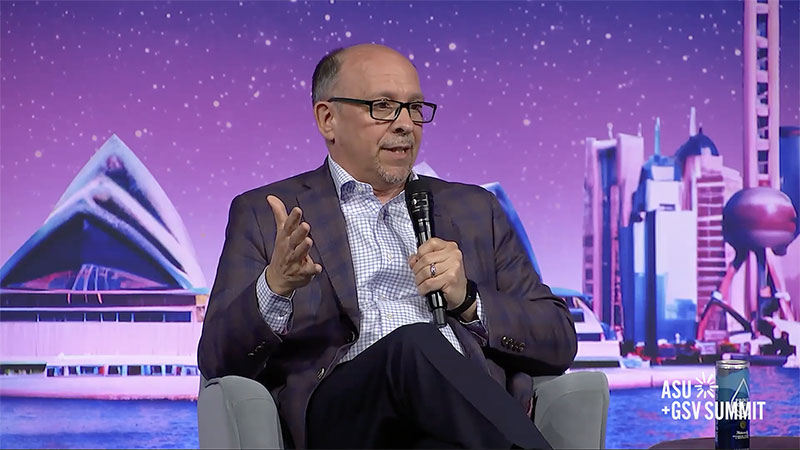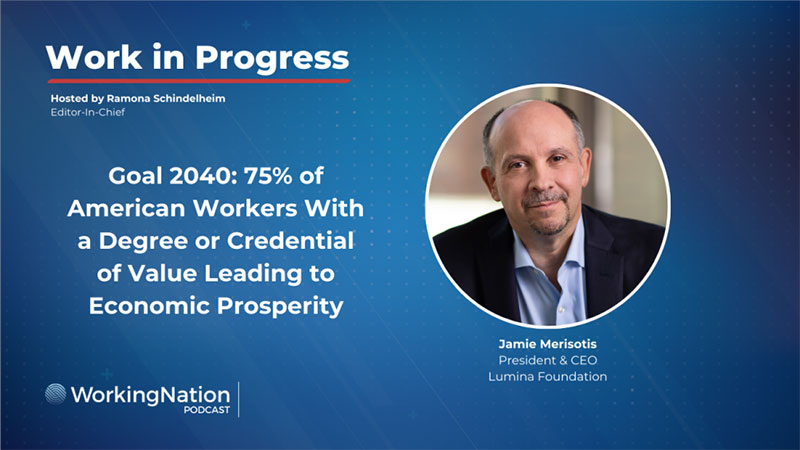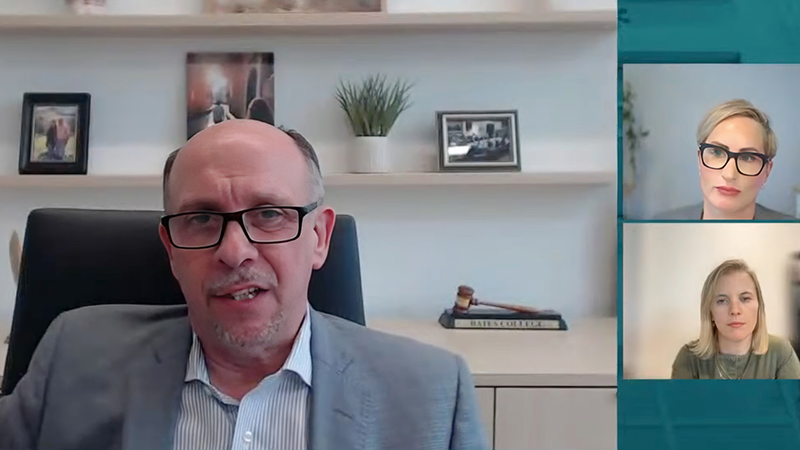Why college matters: for the love of learning—And democracy

In a time of tense scrutiny of higher education, it helps to be reminded why college matters.

In a time of tense scrutiny of higher education, it helps to be reminded why college matters.

Jamie Merisotis talks with journalist Paul Fain about the history of the attainment movement and what comes next. See their discussion from the 16th annual ASU+GSV Summit in San Diego.

To truly address college affordability, higher ed leaders and policymakers need to fundamentally rethink the system: Who is paying for college, and how?

Diversity and equity initiatives are increasingly under attack in statehouses, schools, and corporations across the country. But amid this rising rhetoric, a critical misunderstanding threatens our nation’s future—one that could erode our global leadership and economic prosperity.

On this podcast, Merisotis discusses some of the challenges that still exist for Americans trying to obtain credentials of value, plus Lumina’s new national goal to expand and elevate higher education and workforce training by 2040 and what it will take to get there.

In response to falling public confidence, higher ed needs to deliver greater value and a clear return on investment.

In this episode of the Innovating Together podcast, Merisotis discusses Lumina’s new goal for a successful labor force, the value proposition of higher education, the importance of perceived equity, and the urgency for higher ed reform.

Seventeen years ago, Lumina Foundation set an ambitious goal: By 2025, 60 percent of working-age adults in the United States would have a degree, certificate, or industry-recognized certification. At the time, only 38 percent had one. Today, that number has risen to 55 percent…

Much of what makes America the envy of the world is its great diversity. That diversity cuts across many different lines: Income, geography, gender, ethnicity, race, and many other factors contribute to the nation’s economic strength and competitive ingenuity.
